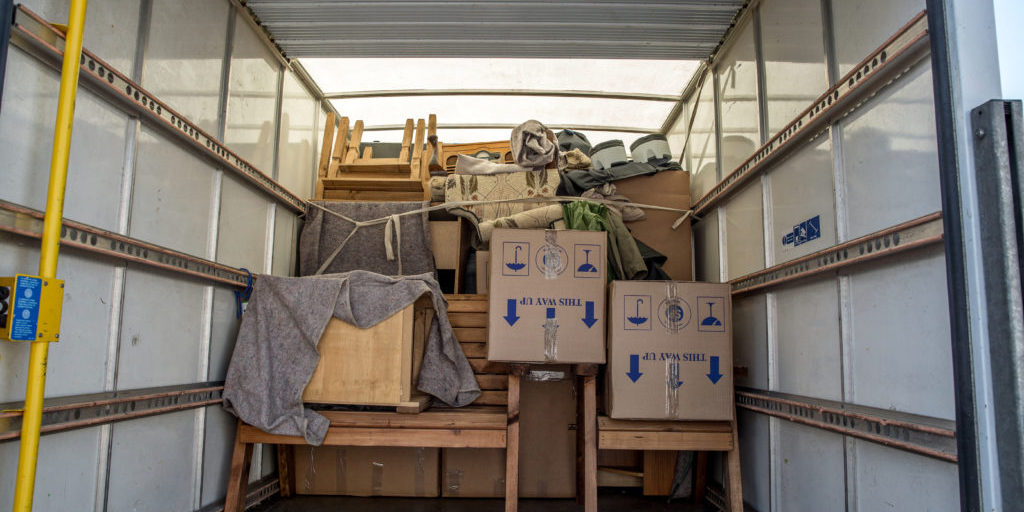[ad_1]
Under the new lockdown in England, home moves can still take place providing everyone follows the government’s safety guidance.
This means that you can visit estate agents, you can view homes in person (as long as you follow social distancing guidelines), and you can use removals firms.
But if you’re unsure about what this all means for your move, particularly if you’re planning to use a removals company, we’ve summarised the latest guidance below.
To find out how the latest restrictions may affect your move, click here, and to read the government’s latest safety advice, click here.
Am I still allowed to use a removals firm?
If you were worried about having to lug all your heavy furniture halfway across town, we have some good news!
Removals firms have been given the green light to carry on working, so long as they follow the latest government guidance on safer working. You can read that here.
So yes, you can use a removals firm for your move, but only if you and the workers you’re using can comply with the government’s strict social distancing guidelines.
Removals companies should ensure their employees understand how to work safely and they should in turn tell you about their safety procedures in advance.
What should I do before hiring a removals company?
To give confidence to all parties present on moving day that the guidance is being followed, you should be asked to complete a handful of questions before moving forward, such as:
- Has anyone in your household had COVID-19?
- Has anyone in your household displayed COVID-19 symptoms or not yet completed a required period of household self-isolation?
- Are you in the high-risk category?
Again, removals workers should contact you in advance to check that no member of your household is showing symptoms of coronavirus or self-isolating. If that is the case, work should be delayed.
What about if a removals worker is showing symptoms?
The guidance here is clear: no work should be carried out by anyone who has coronavirus symptoms, however mild.
It’s worth repeating but make sure you speak to whoever is due to help you move ahead of time. If it’s clear that any party is showing symptoms of coronavirus, delay the work until it is safe to do so.
How can I ensure everyone is as safe as possible on moving day?
The government suggests that:
- You and your household try and do as much of the packing as possible before moving day
- Clean surfaces and possessions with household cleaning products
- Do this cleaning before anyone from the removals firm enters your home
- On moving day, open all internal doors to avoid unnecessary contact with door handles
What can people from the removals firm do to protect us and them?
Removals workers should wash their hands on entering your home, using separate paper towels which need to be disposed of safely after use.
They should also try to minimise contact with you or anyone else from your household and remain two metres apart from you at all times.
People from the removals company should also implement a buddy system to ensure that the same people work together when moving bulky items and furniture.
The government also advises that they bring their own refreshments, but you should ensure they have access to hand washing facilities, using separate towels or paper towels if possible, which should be washed or disposed of safely afterwards.
Should people from the removals company wear a face covering?
According to the latest government guidelines, wearing a face covering is optional and is not required by law, including in the workplace.
If it’s something that you feel strongly about, you should speak to the removals firm before moving day.
If he/she/they choose to wear one, however, it’s important that they wash their hands before putting them on and after taking them off.
Note: A face covering can be very simple and may be worn in enclosed spaces – it just needs to cover your mouth and nose. But it’s not the same as a face mask, such as the surgical masks or respirators used by health and care workers.
Similarly, face coverings are not the same as the PPE used to manage risks like dust and spray in an industrial context.
The government says that supplies of PPE, including face masks, must continue to be reserved for those who need them to protect against risks in their workplace, such as health and care workers, and those in industrial settings like those exposed to dust hazards.
[ad_2]
Source link








